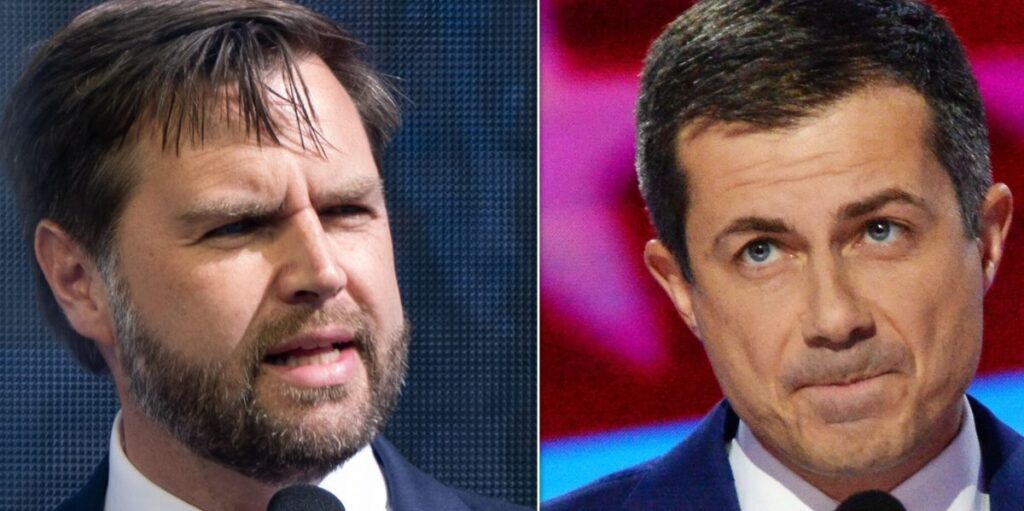Transportation Secretary Pete Buttigieg recently criticized Republican vice presidential nominee JD Vance for his comments regarding the 2020 presidential election at a rally in Pennsylvania. When pressed by a reporter about whether he believed former President Donald Trump had lost, Vance responded with a definitive “no.” He claimed to have answered this question “directly a million times” and suggested that there were “serious problems” with the 2020 election outcome, although he did not fully endorse the notion that Trump had lost. This interaction initiated a broader conversation about the implications of Vance’s stance on election integrity and its potential impact on independent voters.
Buttigieg responded to Vance’s remarks during an appearance on CNN, asserting that Trump’s loss in 2020 was a well-established fact, stressing that Vance’s position reflected a form of dishonesty. Buttigieg contended that Vance’s refusal to acknowledge the reality of the election outcome undermines the credibility of political figures and alienates independent voters who may hold different views on election integrity. The Transportation Secretary characterized Vance’s assertion as not just incorrect, but also politically unwise, given the growing disapproval of election denialism among the electorate.
Buttigieg further characterized Vance’s comments as a political misstep, indicating that being on the record as an “election denier” could prove damaging for Vance’s broader political ambitions. The Secretary’s firm stance reinforces a common narrative among Democrats that election denialism is a potent liability for Republican candidates, particularly as the 2024 election approaches. The perception is that leaning into conspiracy theories surrounding the 2020 election could alienate swing voters and diminish a candidate’s chances of securing a win in a competitive political climate.
Interestingly, while Vance has previously sidestepped questions about his support for Trump’s claims concerning the 2020 election, Buttigieg’s remarks highlight a growing expectation for politicians to take clear and honest stances on such contentious issues. Vance’s recent statement marks a notable shift in his approach, finally placing him on the record regarding his views on the election. Critics argue that this lack of a clear position in the past may have left Vance open to scrutiny, suggesting a pattern of political opportunism rather than authenticity.
The conversation surrounding Vance’s comments encapsulates a larger narrative within the GOP regarding election integrity. While some Republicans attempt to distance themselves from overt election denialism, others, like Vance, seemingly embrace it, potentially driven by party dynamics and a desire to maintain loyalty to Trump. This division within the party may have far-reaching implications, particularly as the GOP strategizes on how to appeal to a diverse voter base that increasingly values transparency and accountability.
As the political landscape evolves ahead of the 2024 elections, Buttigieg’s critique serves as a reminder of the risks associated with aligning with conspiracy theories and the importance of maintaining integrity in political discourse. For figures like JD Vance, the challenge will be to balance loyalty to Trump with the need to connect with a broader electorate that is growing weary of election denialism. Ultimately, the outcomes of such political positioning will shape the future of the Republican Party and its chances in forthcoming elections.

